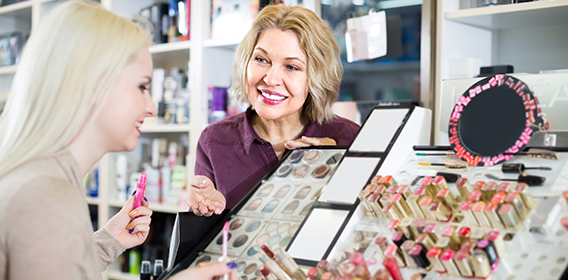The face of beauty retailing continues to change with new brick-and—mortar approaches, along with more competition from online disrupters, such as Amazon. The major beauty specialty stores, such as Sephora, Ulta, Bluemercury, and CosBar, continue to grow, introducing new formats, services, and brands. Department stores try various tactics to expand their beauty sales, including in-store boutiques, while mass retailers, including Target and Walmart, up their game in beauty.
Kline’s new edition of Beauty Retailing: U.S. Channel Analysis and Opportunities will examine beauty retail channels and new formats along with strategies undertaken by various beauty retailers and brands. One of the overriding themes so far is that brick-and-mortar beauty retail is quite alive and growing, just changing, with retailers in all physical channels installing digital components in a continual merger of online and offline retail. Another theme is that retailers in all channels continue to seek out new on-trend products and brands with a specific emphasis toward the hot areas of natural and Korean beauty products.
A sneak peek at the thriving beauty specialty stores includes:
Beauty Specialty Stores
- Sephora opens both its largest store at more than 11,000 square feet and its smallest store at 2,000 square feet during the year. The small format store, dubbed Sephora Studio, opened in Boston and serves as the test for dozens more of these smaller format stores expected to roll out in the coming years. The Sephora Studio locations offer mini-facials and custom makeovers and have a focus on services.
- Riley Rose is a completely new concept from the Forever 21 family. Geared to teens and millennials, the store layout is half beauty, with the rest devoted to home products, candy, and stationary.
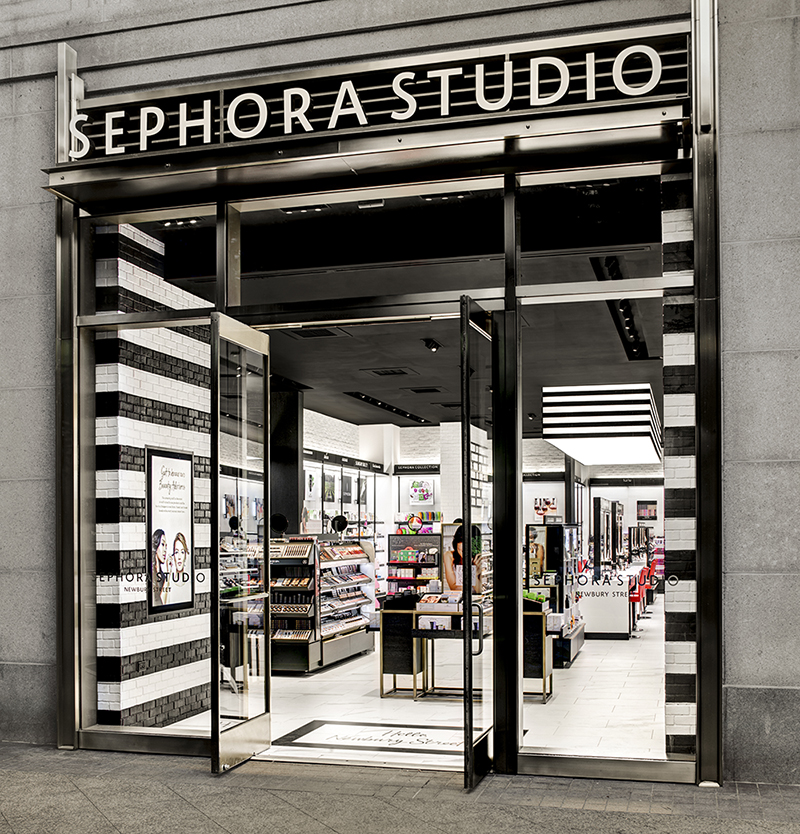
Sephora Studio concept
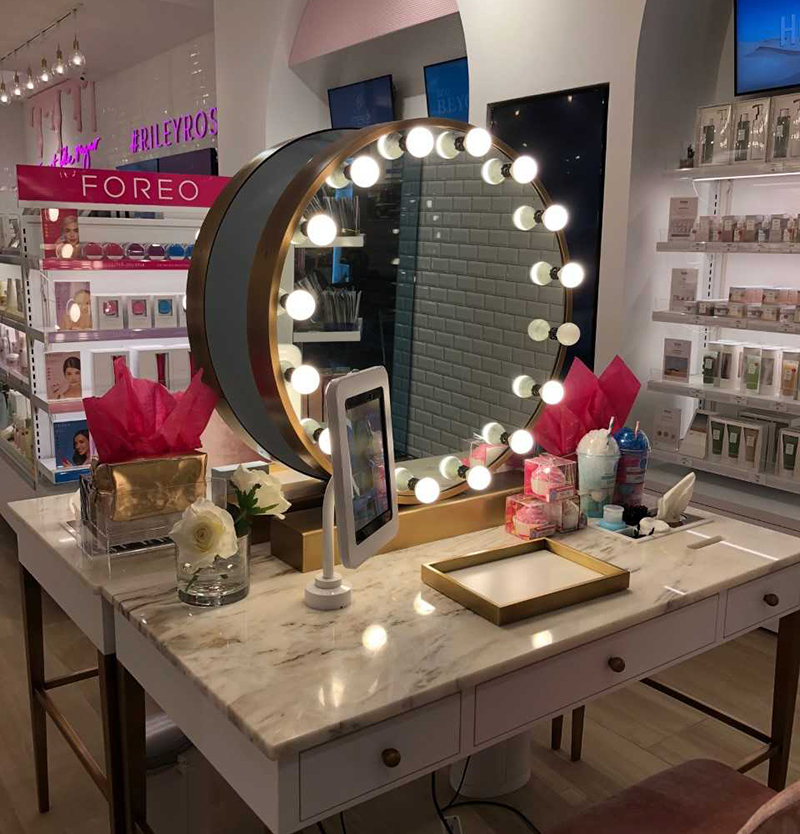
Riley Rose
Beauty Boutiques
- e.l.f. boutiques are geared to consumers of all ages with quality beauty at affordable prices. Unlike e.l.f. installations in mass retailers, the complete product portfolio, including skin care and devices, is offered in their own boutiques.
- NYX, owned by L’Oréal, is increasing its cadre of boutiques that include iPads utilizing blogger and vlogger tutorials to assist customers in obtaining various looks.
- Deciem, which received a 2017 investment by Estée Lauder, has begun to open its own stores, which are so popular that some of the most requested products are out-of-stock.
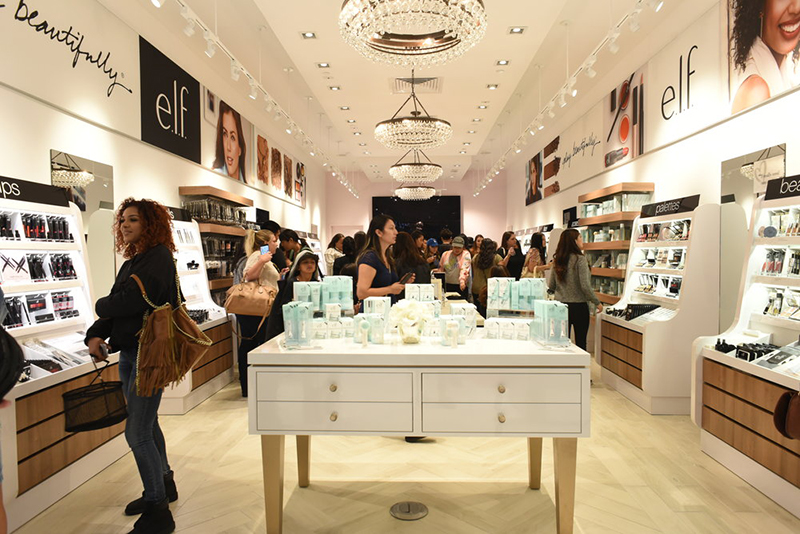
e.l.f. boutique
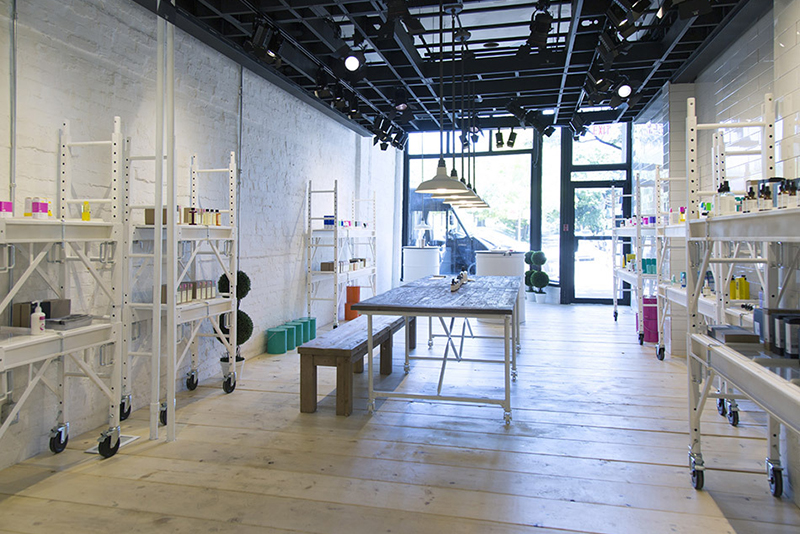
Deciem boutique
Department Stores
- Nordstrom rolls out SpaceNK boutiques in several locations showcasing niche products that do not warrant their own counters.
- Bloomingdale’s Glowhaus is a test of a beauty store-within-a-store concept that offers niche brands of several hundred products geared to millennials. Insteadof being adjacent to the beauty department, these products are actually situated near millennial-oriented clothes in most locations. These departments encourage easy cross-shopping among brands.
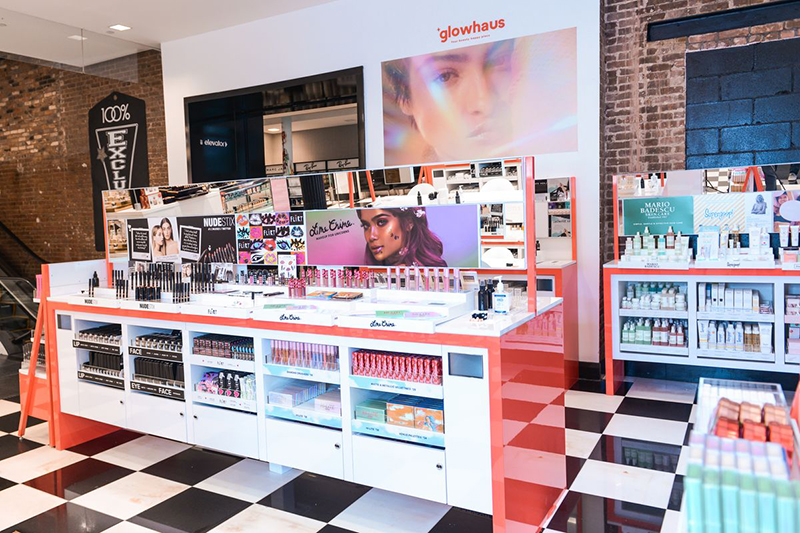
Bloomingdale’s Glowhaus
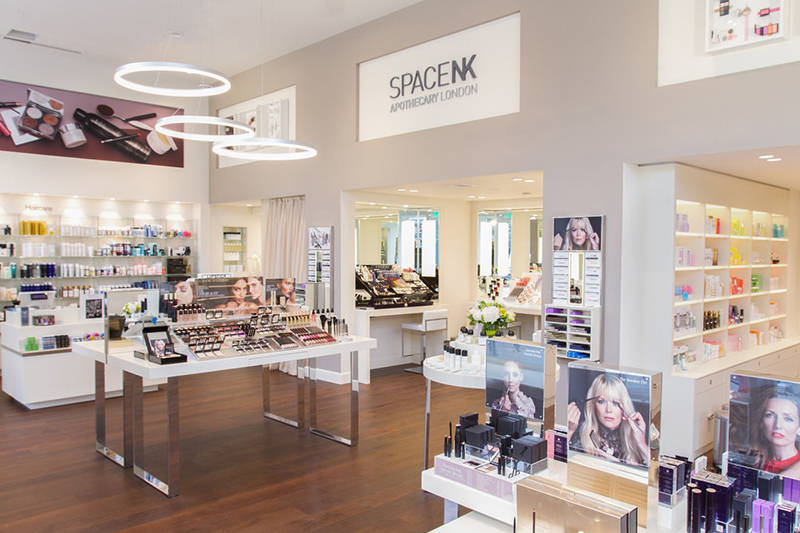
SpaceNK in Nordstrom
Mass Retailers
- Walmart ups its beauty game as it tests an upgraded beauty department at several locations with digital interactions, upscale fixtures, new brands, and on-trend products. iPad installations help educate consumers about trends and how to achieve on-trend looks.
- Target starts to roll out enhanced beauty departments during 2017 that zeroes in on trends and is in a more open layout with branded shops and categories along with niche brands. Target also expands its beauty concierge program with brand-agnostic beauty experts to more locations.
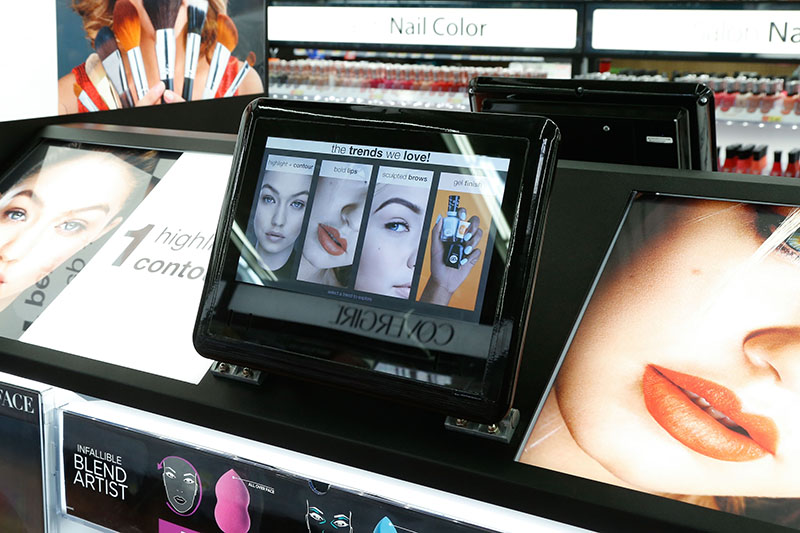
Walmart digital installation
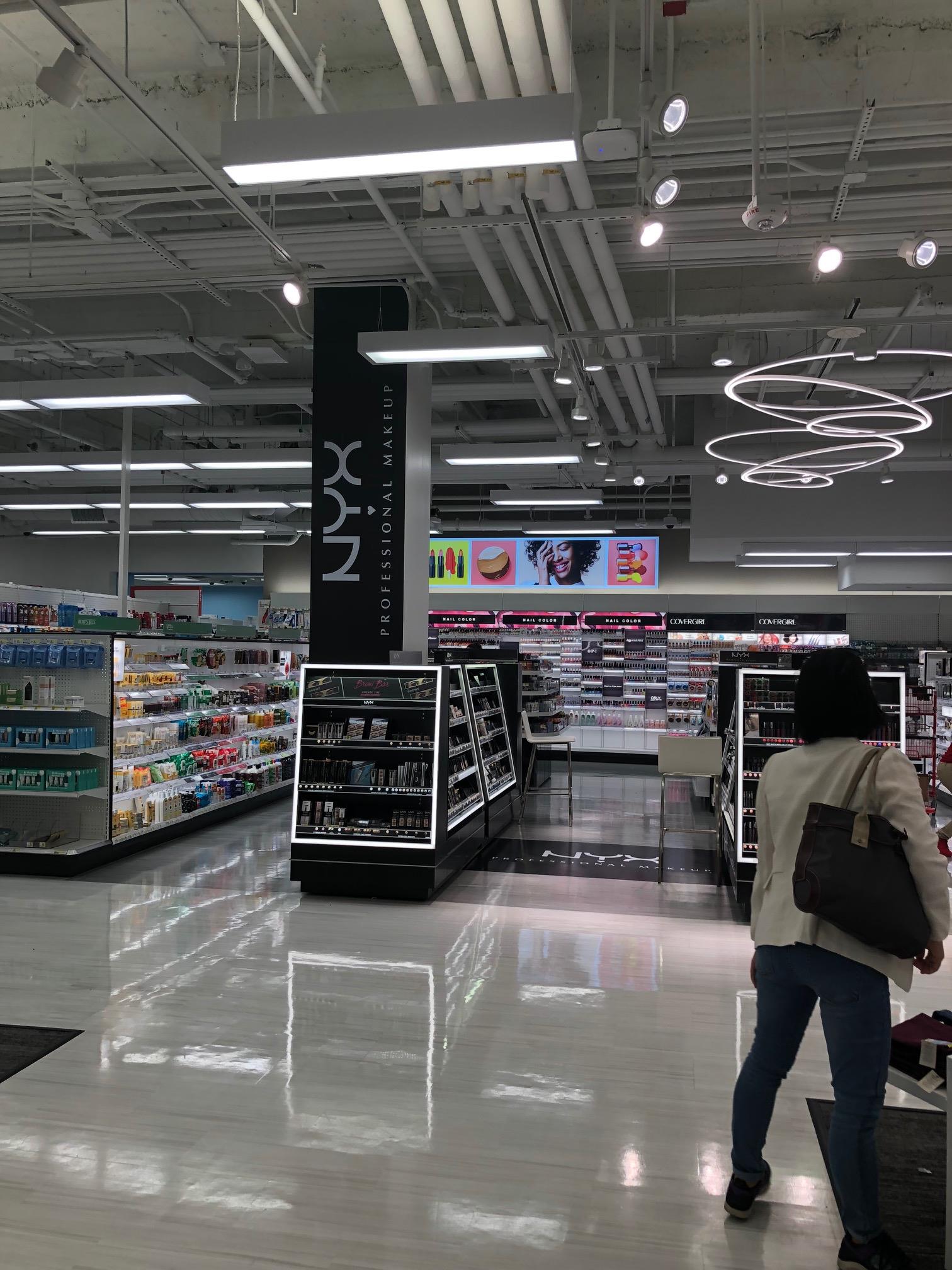
Revamped Target beauty floor
